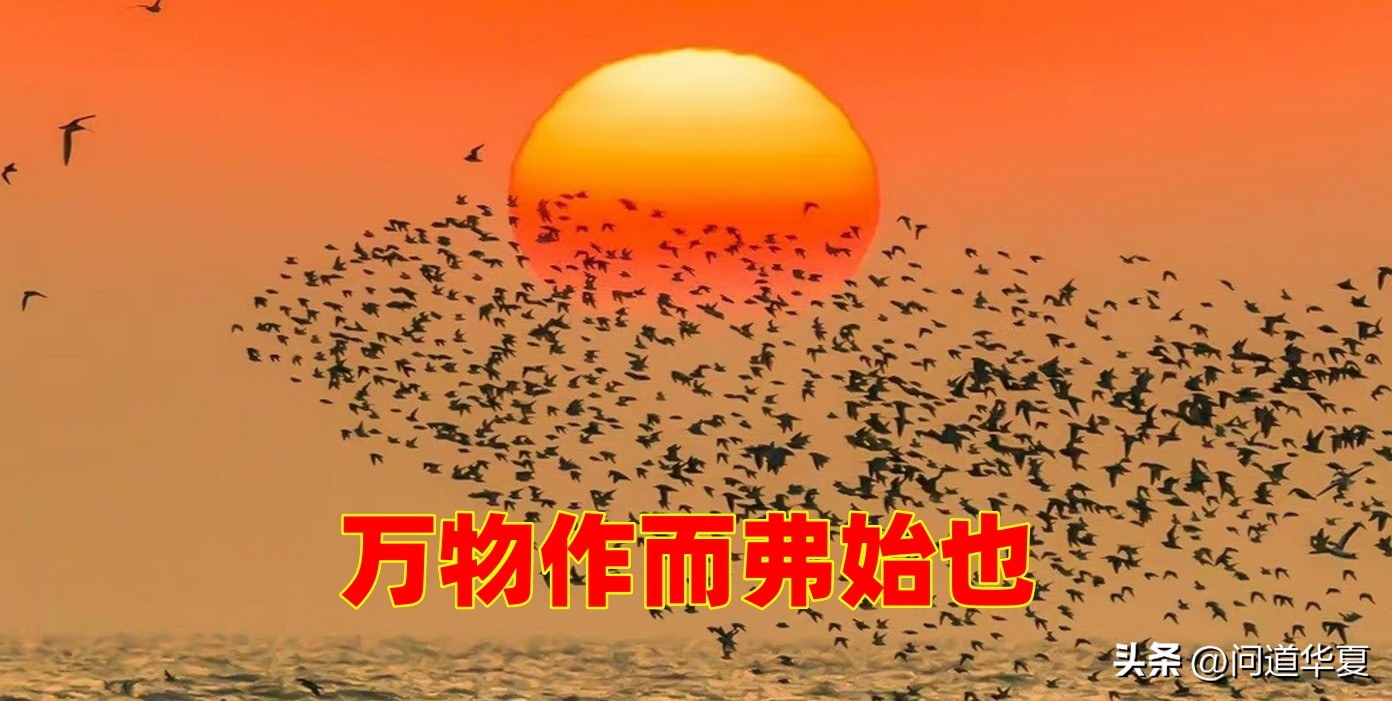#微头条首发挑战赛#
What does it mean to "do nothing without giving up" or "everything to do without beginning"?
This micro-headline wants to discuss not only the difference between "not resigning" and "beginning", but also "all things do without resignation" or "everything does and beginning", which involves the main and auxiliary relationship between "Tao" and "all things".
In three sentences, let's briefly talk about the pros and cons of version rheology. Compared with the Han Jian, the silk book, and the Chu Jianben Laozi, the biography of the Tao Te Ching has many discrepancies in the text, and it has the style of the times that keeps pace with the times, and the meaning is shallower than the ancient text. But there is no major ideological difference between the two, and the major difference is the individual reader.
In the process of circulation, due to the style of the times and the language preferences of the copyists, some imaginary words will be added or deleted, and some sentences will be added, and some compilers of the biography will only consider the improvement of the text, but ignore the "annotations" of the original version, resulting in inconsistencies between the original text and the annotations.
The following compares the words "do not give up" and "the beginning of Buddha" in Chapter 2 to explore the similarities and differences between the two, as well as the relationship between the Tao and all things revealed by the phrase "all things do not give up" or "all things do and the Buddha begins".
The second chapter of the Tao Te Ching says that "all things do not give up", and then it says that it is the mother of all things. So, are all things "born" by the Tao, or are all things born and destroyed by themselves?
According to the traditional understanding, the literal meaning of the biography is to say: "Dao does not hesitate to thank (Heshang Gong)" for the development of all things, "all things are made for me, and I have nothing to say (Su Zhe)", that is, all things are "born" by me, and I do not need to reciprocate. This seems to be in the same vein as the birth of the Great Dao, and it is not necessary to inherit it in order not to be ashamed.
However, "Lü's Spring and Autumn Period" and Fu Yiben's "Tao Te Ching" are written in this sentence as "all things are made but not begun", while the ancient silk book and Chu Jianben are all "Buddha beginnings". Although Wang Bi originally wrote "no resignation", Wang Bi quoted the content of the second chapter as "doing nothing, doing what is not said." All things do without beginning".
This shows that Wang Bi's "Tao Te Ching" is also "all things do but not begin", rather than "all things do without resignation". At the same time, it also shows that today's Wang Biben is not the original Wang Biben.
During the Tang Taizong period, the famous Taoist theorist Cheng Xuanying's "Laozi Tao Te Ching Opening Preface to the Recipe for Yi Shu" also wrote "All things do but not begin".
The discussion of "no resignation" and "no (Fu) beginning" was raised before the excavation of the silk book and the Chu Jianben "Laozi", such as Bi Yuan in the Qianjia period of the Qing Dynasty, and Yi Shunding, Gao Ming, Zheng Liangshu and others after that.
From this point of view, "all things are the beginning of the Buddha" or "all things are the beginning of the Buddha" should be the old of the ancient book. Its original meaning is: the Great Dao's approach to the birth and death of all things is to obey it and not interfere with it, and Zhuang Ziyun "does not precede things" and "harmony does not advocate" is this.
Notice that the meaning of this sentence is: everything is left to fend for itself, the Great Dao does not dominate or stop, everything goes smoothly.
Therefore, the "teaching without words, doing nothing, and doing nothing" in this chapter talks about "the rule of non-action", and the so-called inaction is not to interfere, but also to advocate, and not to prevent, that is, to go along with it, because it is left unchecked. That is to say, the sage "does not speak" and "does nothing", can supplement the nature of all things, and allow all things to arise without advocacy.
In this way, does the question arise: Doesn't it say that all things are "born"? How can it be said that all things are born and die by themselves?
It is true that the Tao "begets" all things, but this "Tao begotten" does not really "give birth" to all things, it is just a figurative metaphor, and this "birth" expresses that all things have changed from the original vague and elusive state of "nothing" to the "birth" of the evolution process of specific forms, and the process of occurrence from "nothing" to "being".
And the Tao plays the role of "auxiliary" in it, not the role of "master". Therefore, there is a saying that "Tao" "can supplement the nature of all things and be the main thing".
The functional attribute of morality is implemented in the rule of the sage, that is, the sage can assist the nature of the people and not be the master of the people. This is also the theoretical basis for Lao Tzu's proposition of "rule by inaction".
#妙笔生花创作挑战 ##老子道德经#
